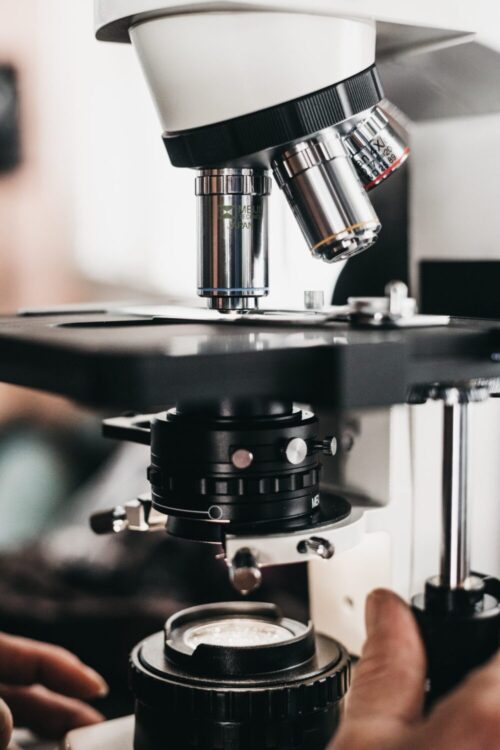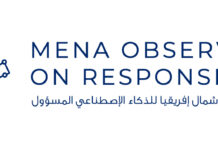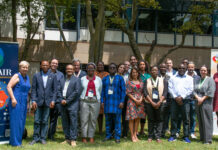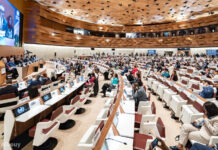By Chidi Oguamanam and Sarah O’Flaherty
The State of Affairs
As the vaccination rate rises in Canada and other developed nations, developing countries globally continue to record an upsurge in daily infection and death rates due to COVID-19. Prime Minister Justin Trudeau recently confirmed that Canada is involved in the World Trade Organization’s (WTO) exploration of the Indian and South African proposal to waive intellectual property (IP) rights for COVID-19 vaccines. In a break from tradition, United States President Joe Biden has lent his country’s support to the initiative, amidst reluctance to do the same from the EU. However, Canada remains ambivalent.
The Debate
Those in favour of the TRIPS waiver argue it will assist developing countries in bypassing the exclusive rights of COVID-19 vaccine patent holders and will liberalize the manufacturing and distribution of COVID-19 vaccines. This liberalization will consequently increase access to vaccines. Ramping up the mass production of COVID-19 vaccines will lead to an increased global supply and, therefore, an increased rate at which the global population achieves herd immunity.
Many – particularly pharmaceutical companies who potentially stand to lose significant profits – oppose the waiver campaign. Some argue that generic drug manufacturers cannot effectively ramp up the production of COVID-19 vaccines and that their engagement may compromise vaccine quality. Others, including European leaders, believe in the importance of honouring the extant rules around compulsory licensing instead of pursuing the potential patent freeze. Many are worried about the possible chilling effect a patent freeze could have on pharmaceutical companies’ commitment to invest in future research and development (R&D) at a time of crisis.
There is no dearth of countries with pharmaceutical manufacturing capacities for COVID-19 vaccines even under compulsory licenses or other contractual arrangements. For example, Bangladesh, Brazil, Canada, Denmark, India, and Israel, among others, are often cited as possessing domestic vaccine manufacturing capacity. If the TRIPS waiver succeeds, it will open a vast space for the global manufacturing and distribution of COVID-19 vaccines. However, it may not necessarily support capacity in greatly impoverished countries unless that need is incorporated as part of a strategic plan.
Canada and the EU, and indeed many actors in the pharmaceutical industry, recognize that the proposed patent freeze is not a “silver bullet” in the fight against COVID-19. Therefore, other creative options to reposition global public health rattled by the pandemic phenomena are desperately needed.
Intellectual Property as an Incentive and a Barrier
The importance of intellectual property as an incentive to innovation cannot be overstated, nor can intellectual property’s problematic role as a barrier to access the benefits of innovation be ignored. The conflicting roles of intellectual property are most evident in the pharmaceutical sector. In recognition of this tension, rights to intellectual property are not absolute. Conversely, IP rights are circumscribed by public interest mediated exemptions and emergency accommodations under common law, statute and through regulatory discretions in specific contexts. Some are captured under the TRIPS Agreement’s provisions, especially concerning the compulsory licensing of patents. However, analysts argue that the details for implementing compulsory licences are complicated to the degree that renders it a less attractive option in most cases, especially in emergency situations.
The Special Nature of Pharmaceuticals and Public Health
Intellectual property jurisprudence recognizes that global health exigencies, especially those concerning the world’s poor and the most vulnerable regions, warrant special concessions from core market and trade measures. Paragraph 4 of the 2001 Doha Declaration on the TRIPS Agreement and Public Health is unequivocal that “the TRIPS Agreement does not and should not prevent members from taking measures to protect public health. Accordingly … the Agreement can and should be interpreted and implemented in a manner supportive of WTO members’ right to protect public health and, in particular, to promote access to medicines for all”.
Inoculation, Vaccines and Traditional Knowledge
Vaccines are a different kind of medicine because they exist at the core of public health, whereof the health of one is linked to the health of all. As a practice and process both in research and development, vaccination and vaccines are prophylactic public health strategies in the nature of the global public good. In Caste: The Origin of Our Discontents, Isabel Wilkerson’s chronicle reveals that the idea of inoculation as a medical strategy was introduced in Boston, MA in 1721 during the smallpox pandemic by a West African slave, who narrated an experiential communal knowledge of West African peoples. The slave revealed the indigenous African practice of fending off “contagions by inoculating themselves with a specimen of fluid from an infected person.” This singular piece of information shared by a slave – and victim of colonial exploitation – has been the basis of rent-seeking proprietary R&D upon which transgenerational fortunes have been built. This system has resulted in a situation of global vaccine disequilibrium that has left many in Africa and the world’s Indigenous peoples behind. COVID-19 is in the league of smallpox, cholera, the bubonic plague, influenzas, and the deadliest diseases of pandemic proportions. All have a history of creating havoc across national boundaries. They pose an existential threat to human life on earth and require an exceptional response.
America’s Operation Warp Speed (OWP) – Inspiring a New Strategy
With experts predicting more pandemics on the horizon, it is increasingly clear that the new dynamic of pandemic-driven global public health crisis requires a new responsive strategy for vaccine R&D, unconstrained by intellectual property. Public-private collaboration in vaccine R&D is now warranted. America’s OWP is a national model for expedited development of COVID-19 vaccines through de-risking strategy in which public subsidization of COVID-19 drug development has since paid off. Under OWP, the US government has the leverage to prioritize access to COVID-19 vaccines to its citizens, bypassing market and intellectual property constraints. OWP is an experiment worth scaling globally, with necessary adjustments. So far, the attempt to ensure timely global access to vaccines to the developing world under the GAVI-COVAX initiative is dogged by complex market and proprietary constraints, as well as vaccine nationalism. Under a globally pulled funding, a globally coordinated public-private scheme can offset private-sector financial and risk exposure to free market and proprietary constraints associated with intellectual property. This scheme is one way to get around the exorbitant price of patented vaccines, and by extension, address the question of vaccine access for the most vulnerable as a global public good.
The Vaccine Patent Freeze as a Band-Aid
The proposed public-private scheme may render nugatory the extant push for an intellectual property freeze on COVID-19 vaccine patents. In essence, a patent freeze is a temporary measure. It does not address the need for a permanent sui generis approach to the new pandemic-driven global health reality. This approach would ensure that the cost of vaccines is not a primary barrier to access. In a CNN Op-Ed, Harvard Professor, Ruth Okediji, argues that “patents on pharmaceutical products are not the sole culprit behind the vaccine gap between rich and poor countries. Nor are they the only reason people living in poverty do not have access to lifesaving medicines”. Other barriers revolve around technology and infrastructure for generic drug manufacturing, supply chain bottlenecks, and other constraints associated with multiple intermediaries.
Nothing underscores the urgent need for an out-of-the-box approach to tackling the pandemic-induced global health crisis more than the present unconscionable geopolitical asymmetries that characterize the access and distribution of COVID-19 vaccines. While developing countries will feel a sense of relief as they gradually come closer to herd immunity throughout the summer of 2021, it is likely to take up to 2024 or beyond before some regions of the world could attain that same level of confidence. Consequently, the progress made in developed countries may not be sustainable after all.
Before the next Pandemic
We agree with Okediji’s observation that “a fundamental restructuring of global health rules around patents is essential.” Beyond patents and intellectual property, a pandemic-induced global health crisis calls for a completely new global strategy, which could find inspiration in the United States’ Operation Warp Speed. Any scheme to address the present and potential challenges posed by pandemic-driven global health crisis must recognize that medicine evolves through shared knowledge. Wilkerson’s book reminds readers of the antecedents of vaccination by sharing traditional knowledge, generously given for our common humanity, albeit under dehumanizing circumstances. Canada, the United States, and the rest of the developed world must recognize that equitable access to medicines is a moral imperative, even more so in the context of a pandemic-driven global health crisis. The world cannot afford to navigate the next pandemic under the prevailing status quo.
Post first appeared on ABS Canada. Banner photo by Misael Moreno on Unsplash.










